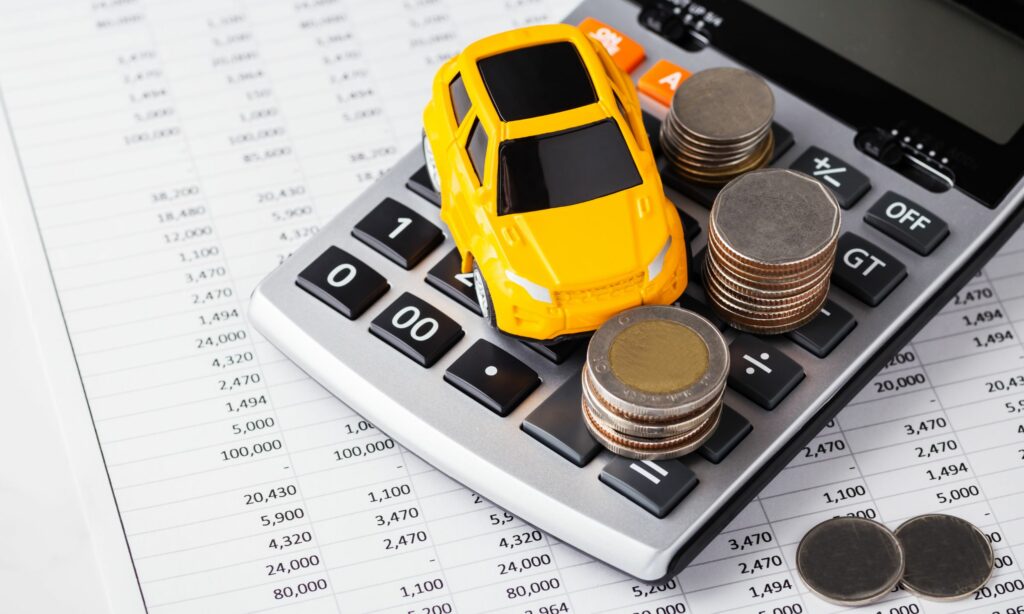Buying a used car can be a smart financial decision, offering cost savings and a wider selection of vehicles compared to buying new. Whether you’re looking for your first car, a reliable daily driver, or a specific make and model, the used car market can provide a range of options to suit your needs and budget.
In this blog post, we’ll explore the top tips for buying a used car, including what to look for and what to avoid. From researching the right vehicle to inspecting it thoroughly and understanding its history, we’ll cover everything you need to know to make an informed decision when buying a used car.
Whether you’re buying from a dealership or a private seller, these tips will help you navigate the process with confidence and ensure that you get the best value for your money. So, if you’re in the market for a used car, read on to learn how to make the most of your purchase!
Benefits of Buying a Used Car
Buying a used car offers several advantages over purchasing a new vehicle. Here are some key benefits to consider:
Benefit #1: Cost Savings
Perhaps the most significant benefit of buying a used car is the cost savings. Used cars are typically priced lower than new cars, allowing you to get more value for your money. Additionally, used cars depreciate at a slower rate than new cars, meaning you won’t experience the same level of value loss over time.
Benefit #2: Lower Depreciation
New cars can depreciate in value rapidly, especially within the first few years of ownership. By buying a used car, you can avoid the steepest depreciation period and potentially retain more of your investment in the long run.
Benefit #3: Wider Selection
The used car market offers a wide range of makes, models, and options to choose from. Whether you’re looking for a specific year and trim level of a popular model or a rare find, the used car market can provide more choices than the new car market.
Benefit #4: Easier to Afford Luxury Models
Buying a used luxury car can be more affordable than purchasing a new one. Luxury cars often depreciate more quickly than non-luxury vehicles, making them a more budget-friendly option in the used car market.
Benefit #5: Lower Insurance Costs
In general, insurance costs for used cars are lower than for new cars. This can help you save money on insurance premiums over the life of the vehicle.
Overall, buying a used car can offer significant financial benefits and a wider range of options compared to buying new.
Factors to Consider Before Buying
Before diving into the process of buying a used car, there are several important factors to consider to ensure you make the right choice:
- Budget: Determine how much you can afford to spend on a used car, taking into account not just the purchase price but also ongoing costs such as insurance, maintenance, and fuel.
- Vehicle History Report: Obtain a vehicle history report using the car’s VIN number. This report can provide valuable information about the car’s past, including any accidents, title issues, or odometer discrepancies.
- Mechanical Condition: Have a trusted mechanic inspect the car to assess its mechanical condition. This can help you identify any potential issues that may not be immediately apparent.
- Mileage: Consider the mileage of the car, as lower mileage vehicles often command higher prices due to less wear and tear. However, don’t discount a higher mileage car if it has been well-maintained.
- Ownership Costs: Factor in the cost of ownership, including insurance, maintenance, repairs, and fuel. Some cars may be cheaper to buy but more expensive to own in the long run.
By considering these factors before buying a used car, you can ensure that you make a well-informed decision and avoid any potential pitfalls.
Top Tips for Buying a Used Car
When buying a used car, it’s essential to take a strategic approach to ensure you get the best value for your money. Here are some top tips to keep in mind:
Tip #1: Research Extensively
Before making any decisions, research the make and model you’re interested in. Look up reviews and ratings from reliable sources to get an idea of the car’s performance, reliability, and overall value. Additionally, research the fair market value of the vehicle to ensure you’re getting a good deal.
Tip #2: Inspect the Car Thoroughly
When inspecting a used car, pay close attention to its condition both inside and out. Look for signs of rust or corrosion, evidence of accidents or repairs, and check the condition of the tires, brakes, and suspension. A thorough inspection can help you identify any potential issues and negotiate a fair price.
Tip #3: Test Drive the Car
Always take the car for a test drive before making a purchase. Pay attention to how the car drives, accelerates, and brakes, and test all the features and amenities, such as the air conditioning and audio system. Listen for any unusual noises or vibrations, as these can indicate underlying problems.
Tip #4: Get a Vehicle History Report
Obtain a vehicle history report using the car’s VIN number. This report can provide valuable information about the car’s past, including any accidents, title issues, or odometer discrepancies. Use the report to verify the car’s history and condition.
Tip #5: Have the Car Inspected by a Mechanic
Before finalizing the purchase, have the car inspected by a trusted mechanic. A pre-purchase inspection can uncover any hidden issues and give you peace of mind about the car’s condition. Use the inspection results to negotiate the price or request repairs if necessary.
By following these tips, you can approach the process of buying a used car with confidence and ensure that you get the best value for your money. Taking the time to research, inspect, and test drive the car can help you avoid any potential pitfalls and make a smart investment in a reliable vehicle.
Common Pitfalls to Avoid
While buying a used car can be a great way to save money and find a reliable vehicle, there are some common pitfalls to avoid to ensure a smooth buying process:
Pitfall #1: Buying Without a Test Drive
It’s essential to test drive a used car before making a purchase. A test drive allows you to experience how the car drives, accelerates, and brakes, giving you a sense of its overall condition and performance.
Pitfall #2: Skipping the Vehicle History Report
A vehicle history report can provide valuable information about a car’s past, including any accidents, title issues, or odometer discrepancies. Skipping this step can leave you unaware of potential problems with the car.
Pitfall #3: Ignoring Signs of Potential Problems
When inspecting a used car, it’s important to pay attention to any signs of potential problems. These can include unusual noises, vibrations, or warning lights. Ignoring these signs can lead to costly repairs down the road.
Pitfall #4: Not Getting a Pre-Purchase Inspection
A pre-purchase inspection by a trusted mechanic is essential when buying a used car. This inspection can uncover any hidden issues that may not be apparent during a visual inspection and help you make an informed decision about the car’s condition.
Pitfall #5: Rushing the Buying Process
Buying a used car is a significant investment, and it’s important not to rush the process. Take the time to research, inspect, and test drive the car thoroughly before making a decision. Rushing can lead to overlooking important details and regrets later on.
By avoiding these common pitfalls and taking a careful and methodical approach to buying a used car, you can increase your chances of finding a reliable vehicle that meets your needs and budget.
Buying a used car can be a rewarding experience, offering cost savings and a wide range of options to choose from. By following the tips outlined in this blog post, you can approach the process with confidence and ensure that you get the best value for your money.
From researching the right vehicle to inspecting it thoroughly and understanding its history, these tips can help you make an informed decision when buying a used car. Whether you’re looking for a budget-friendly option or a specific make and model, the used car market has much to offer.
If you’re in the market for a used car, take the time to research, inspect, and test drive potential vehicles before making a decision. By avoiding common pitfalls and taking a careful approach, you can find a reliable used car that meets your needs and budget.
Wisely Navigate The Used Car Market
Buying a used car can be a rewarding experience, offering cost savings and a wide range of options to choose from. By following the tips outlined in this blog post, you can approach the process with confidence and ensure that you get the best value for your money.
From researching the right vehicle to inspecting it thoroughly and understanding its history, these tips can help you make an informed decision when buying a used car. Whether you’re looking for a budget-friendly option or a specific make and model, the used car market has much to offer.
If you’re in the market for a used car, take the time to research, inspect, and test drive potential vehicles before making a decision. By avoiding common pitfalls and taking a careful approach, you can find a reliable used car that meets your needs and budget.





